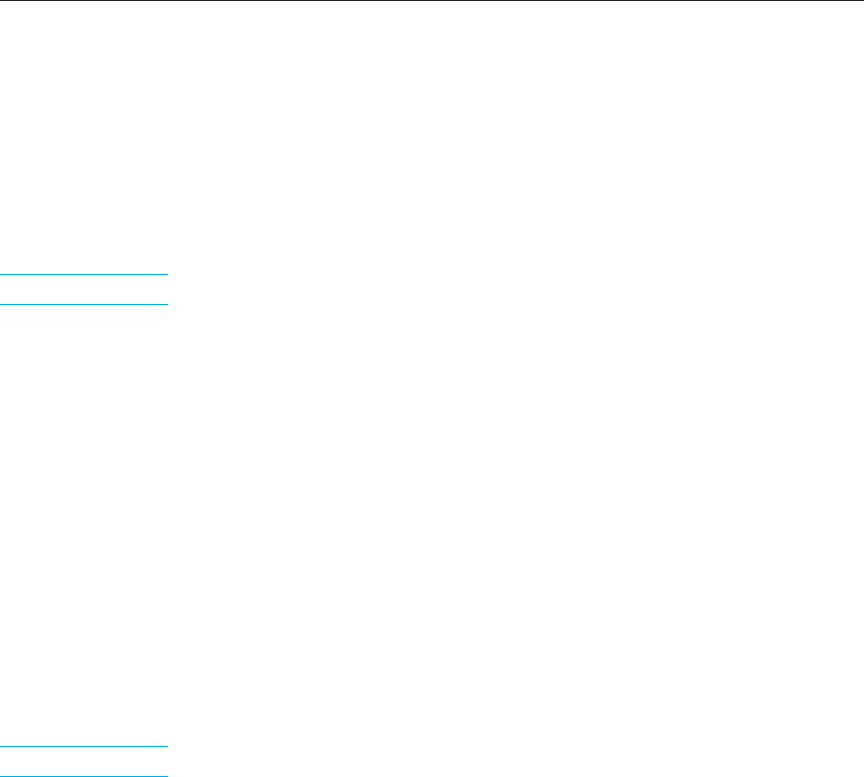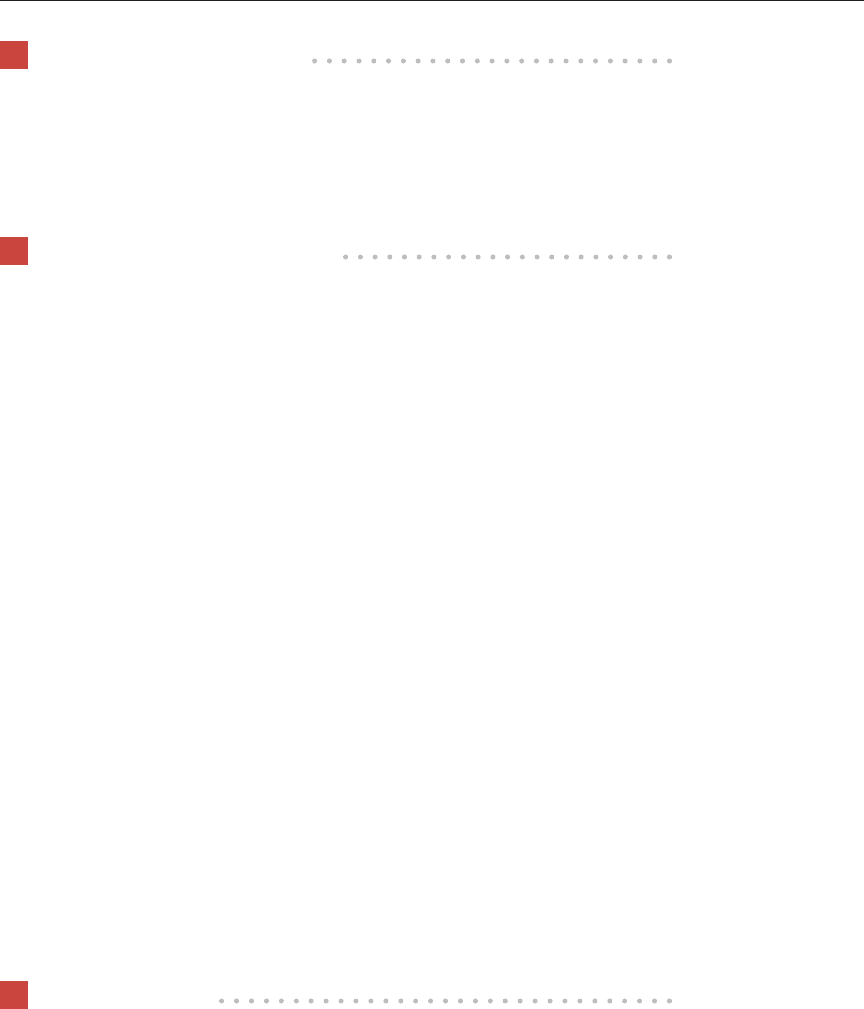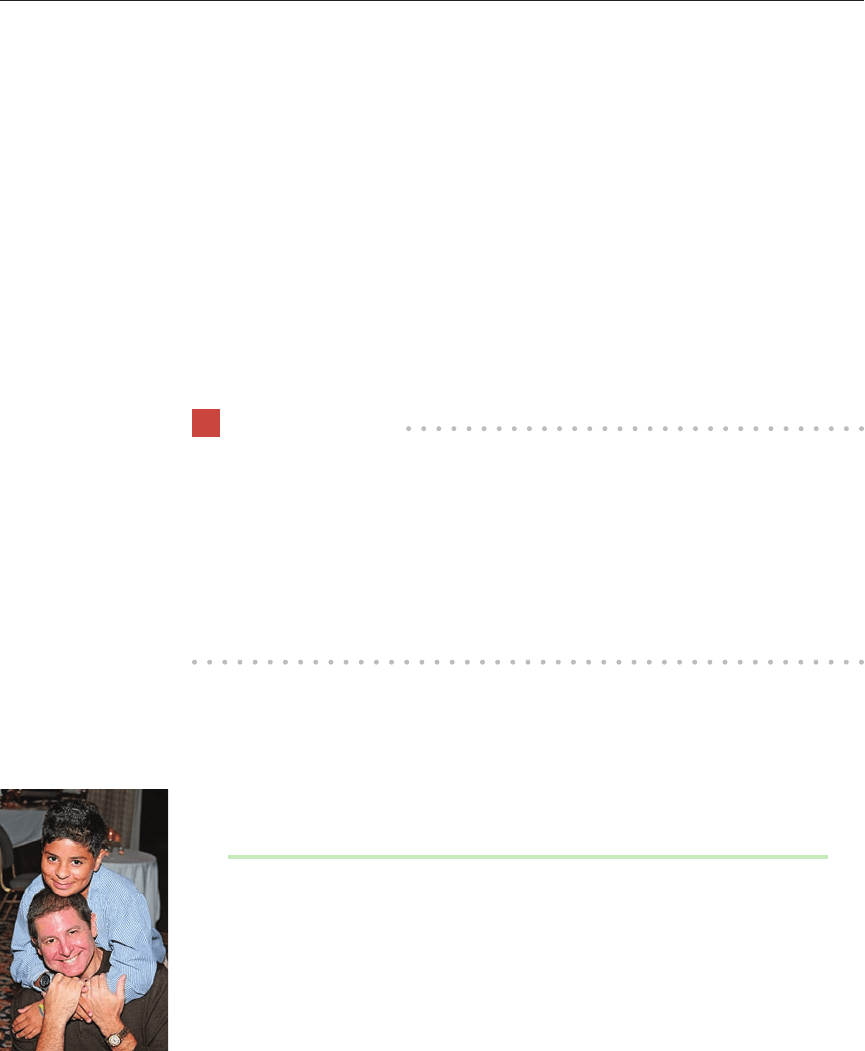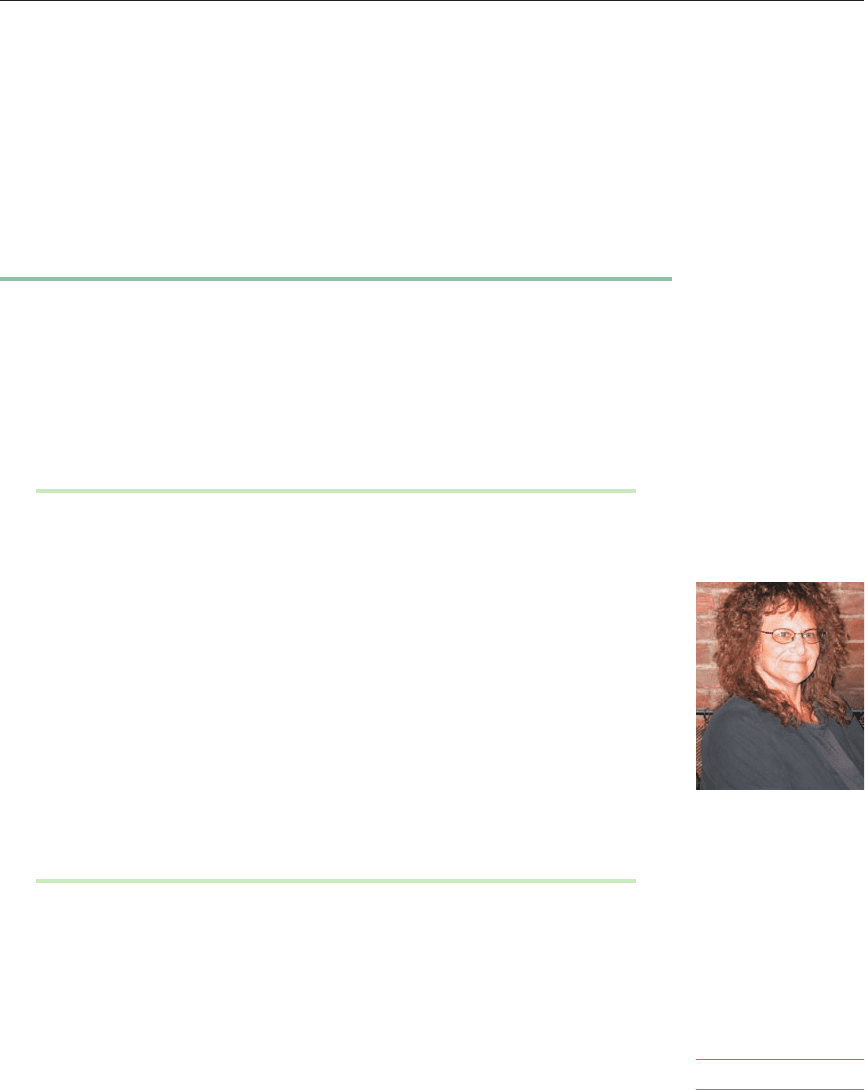Anker Susan. Real Essays with Readings with 2009 MLA Update
Подождите немного. Документ загружается.


READINGS
Chapter 51 • Argument Casebook 847
he explains the facts behind widely held but mistaken beliefs about
medicine. His essays have appeared in the Washington Post, USA Today,
and Slate, and he is a frequent guest on television news programs and
National Public Radio. His books include False Alarm: The Truth about
the Epidemic of Fear (2005), named one of the top twenty books of the
year by Discover magazine, and Bird Flu: Everything You Need to Know
about the Next Pandemic (2006).
“Treating the Pain by Ending a Life” fi rst appeared in the Boston
Globe in January 2006 shortly after the U.S. Supreme Court ruled in favor
of the state of Oregon in a suit that the Bush administration brought
over an Oregon state law permitting physician-assisted suicide.
GUIDING QUESTION
What does Siegel say are the two primary roles for a physician, and
how do these two roles shape his argument?
1 The U.S. Supreme Court ruled this week that doctors in Oregon
should not be charged with a crime for overdosing patients in the name
of treating pain and hastening death. This decision should be applauded
and must not be circumvented
1
by new laws.
2 Ten years ago, I assumed the care of a woman with advanced pan-
creatic cancer that had spread to her spine. She was a well-known writer,
and we quickly became friends. I would travel to her apartment and visit
her for hours there, something I’d rarely done before and haven’t done
since. She had a close group of friends who visited her constantly, and an
Irish nursing agency that cared for her impeccably around the clock. At
fi rst, her cancer wasn’t causing her pain, though it paralyzed her below
the waist and bound her to her bed and wheelchair. Still, she enjoyed
the visits, mine and everyone else’s, until the fateful day when the cancer
spread to her bones and began what was clearly an escalating pain. I
dialed up the morphine
2
to compensate, until the day came when the
amount of morphine necessary clearly hastened her death. I was able to
predict roughly the time she would die, and her friends said their good-
byes. I used morphine in the name of relieving suffering, not as a murder
weapon. No one who knew her seemed upset by the trade-off, a tortured
life for a peaceful death, and all thanked me for my care at the end.
3 Morphine and other narcotics suppress breathing and lower blood
pressure. It is not unusual for physicians to use these drugs to relieve suf-
fering and thereby accelerate death in terminal cases. What is unusual is
PAUSE: How do
you respond to the
“trade-off” of “a
tortured life for a
peaceful death”?
1
circumvented: bypassed; gotten around
2
morphine: a powerful pain-relieving medication
ANK_47574_52_ch51_pp841-866 r3 ko.indd 847ANK_47574_52_ch51_pp841-866 r3 ko.indd 847 10/29/08 10:30:59 AM10/29/08 10:30:59 AM

READINGS
848 Part Eight • Readings for Writers
for doctors to be prosecuted for overdosing their patients deliberately in
the name of this cause. Oregon has been the focus of the Bush adminis-
tration’s attempts to criminalize the activity, but this use of medications
to knowingly end a tortured life is not confi ned to Oregon. It has been
part of a physician’s end-of-life role for many years, whether it is formal-
ized in the law or not.
4 Any effective physician has two fundamental roles. The fi rst is to
prolong life. The second is to ease suffering. In most situations, easing
suffering is part of prolonging life, as when we guide a patient through
an accident or a surgery and treat pain as part of ensuring survival.
Sometimes, though, our two roles collide, and a decision must be made
as to which to prioritize.
3
This decision is made, in part, by considering
long-term outcome as well as the wishes of the patient. It is never a per-
fect situation, but we physicians have been making this determination
for eons, and we cannot be penalized or prosecuted and still be expected
to function.
5 In the Netherlands, active euthanasia
4
is legal, which means that
a cancer patient who is still ambulatory and thinking clearly can ask a
doctor for a lethal injection. I am not in favor of this policy, not because
I believe that a person doesn’t have a right to end his or her life when
given a terminal diagnosis, but because I question the role of a physi-
cian in facilitating
5
this outcome. Such a role should not be assumed,
because it is not strictly a part of relieving suffering.
6 But this is not the same thing as the Oregon law, which allows
a physician to participate when pain predominates, when the patient
is in agony, when reducing morphine cannot bring back quality of
life. When the only choice is pain or death, doctors routinely — with
their patients’ advance approval — help them choose death. The U.S.
Supreme Court is wise to acknowledge one of our fundamental roles.
We are not “Kevorkian-izing”
6
our doomed patients when we help ease
their path from this world.
PAUSE: Summarize
the central point of
this paragraph.
PAUSE: Under
what conditions,
according to Siegel,
should doctors be
allowed to pre-
scribe potentially
lethal doses of nar-
cotics to patients?
3
prioritize: give greater importance to
4
active euthanasia: the assistance in or hastening of death by using drugs or other
means. In passive euthanasia, death is a side-effect of the treatment of pain or the
withholding of other forms of treatment.
5
facilitating: making easier
6
“Kevorkian-izing”: actively helping people commit suicide. Dr. Jack Kevorkian,
a controversial fi gure in the debate over physician-assisted suicide, created several
devices that allowed individuals to self-administer lethal dosages of drugs. Kevorkian,
a trained physician whose medical license was revoked in 1991, claimed to have
participated in the suicide of some 130 people and was convicted of second-degree
murder in 1999.
ANK_47574_52_ch51_pp841-866 r3 ko.indd 848ANK_47574_52_ch51_pp841-866 r3 ko.indd 848 10/29/08 10:30:59 AM10/29/08 10:30:59 AM

READINGS
Chapter 51 • Argument Casebook 849
SUMMARIZE AND RESPOND
In your reading journal or elsewhere, summarize the main point of “Treat-
ing the Pain by Ending a Life.” Then, go back and check off support for this
main idea. Next, write a brief summary (three to fi ve sentences) of the essay.
Finally, jot down your initial response to the reading. How sympathetic are
you toward Siegel’s beliefs about doctors’ “end-of-life role”?
CHECK YOUR COMPREHENSION
1. Which of the following would be the best alternative title for this essay?
a. “A Doctor’s Competing Roles: The Need to Prioritize”
b. “The Right to Relieve a Patient’s Suffering”
c. “The Use of Morphine to Treat Pain”
d. “Active Euthanasia”
2. The main idea of this essay is that
a. doctors should not be barred from using narcotics to relieve the suf-
fering of patients who are in incurable, unbearable pain — even if the
narcotics prove to be lethal.
b. a doctor’s primary roles are to prolong life and to ease suffering.
c. doctors should do everything in their power to save a patient’s life.
d. the patient’s wishes are irrelevant when a doctor decides to adminis-
ter a potentially lethal dosage of pain medication.
3. Siegel makes the point in the essay that he is opposed to
a. the use of morphine and other narcotics.
b. Oregon’s law permitting doctors to administer narcotics to hasten a
patient’s death.
c. active euthanasia.
d. predicting when a patient will die.
4. If you are unfamiliar with the following words, use a dictionary to check their
meanings: impeccably, compensate (para. 2); collide (4); predominates (6).
READ CRITICALLY
1. What is the point of the example that Siegel writes about in paragraph 2?
Why do you suppose that he decided to develop it in detail and include it
early in the essay?
ANK_47574_52_ch51_pp841-866 r3 ko.indd 849ANK_47574_52_ch51_pp841-866 r3 ko.indd 849 10/29/08 10:30:59 AM10/29/08 10:30:59 AM

READINGS
850 Part Eight • Readings for Writers
2. What is the purpose of paragraph 3? Does the information that Siegel
offers here surprise you in any way?
3. What distinction does Siegel make between using drugs in potentially
lethal doses to relieve pain and practicing active euthanasia, which is legal
in the Netherlands? Why do you think that he feels the need to make this
distinction?
4. Evaluate Siegel’s fi nal paragraph. How effectively do you think he makes
his case here?
5. How would you defi ne Siegel’s intended audience? How does his perspec-
tive as a physician shape his argument?
WRITE AN ESSAY
Write an essay in which you argue your views regarding another controversy
in the practice of medicine — for example, the medical use of marijuana, ani-
mal testing and experimentation, condom distribution in schools to stem the
spread of disease, human cloning, the publication of the names of people who
are infected with HIV, the effectiveness of alternative medical practices, or the
mandatory treatment of the dying children of parents whose religion forbids
it. You may wish to do some research so that you have a good grasp of differ-
ing opinions on the issue.
Jerry Fensterman
I See Why Others Choose to Die
Jerry Fensterman was a devoted father, husband, and golfer, among
other things. He graduated from University of California, Santa Cruz,
and received a graduate degree from University of California at Berke-
ley. His last and perhaps most satisfying job was as director of devel-
opment at the Fenway Institute. After he was diagnosed with cancer,
Fensterman found solace in writing. During his illness, his writing ener-
gized him, and he said that if his health improved, he would write seri-
ously about topics that he thought were important. After Fensterman’s
death in 2007, his wife, Lisa Bevilaqua, sorted through his belongings
and discovered journals that began in his years in college and continued
Jerry Fensterman with
his son
ANK_47574_52_ch51_pp841-866 r3 ko.indd 850ANK_47574_52_ch51_pp841-866 r3 ko.indd 850 10/29/08 10:30:59 AM10/29/08 10:30:59 AM

READINGS
Chapter 51 • Argument Casebook 851
beyond graduation. In these journals, Fensterman confronted a range
of life issues and worked through problems of all sorts. He also left
many letters for family and friends to read after his death. Fensterman
discovered himself in the act of writing, and his writings during his ter-
minal illness inspired others.
In the essay that follows, Fensterman offers a unique position on
the issue of physician-assisted suicide, showing that complex questions
rarely have simple black-and-white, one-size-fi ts-all answers.
GUIDING QUESTION
What kinds of changes, both physical and psychological, does
Fensterman describe undergoing in the years following April 2004?
1 The U.S. Supreme Court’s decision to let stand Oregon’s law per-
mitting physician-assisted suicide
1
is sure to fuel an ongoing national
debate. Issues of life and death are deeply felt and inspire great passions.
It would be wonderful, and unusual, if all those joining the fray would
do so with the humility and gravity
2
the matter deserves.
2 I am approaching fi fty, recently remarried, and the father of a ter-
rifi c thirteen-year-old young man. By every measure, I enjoy a wonder-
ful life. Or at least I did until April 2004, when I was diagnosed with
kidney cancer. Surgery was my only hope to prevent its spread and save
my life. The discovery of a new lump in December 2004 after two sur-
geries signaled that metastasis
3
was under way. My death sentence had
been pronounced.
3 Life may be the most intense addiction on earth. From the moment
I fi rst heard the words “you have cancer,” and again when I was told
that it was spreading out of control, I recognized my addiction to life
almost at the cellular level. I have tried since then, as I did before, to live
life to the fullest. I also committed myself to doing everything within my
power to extend my life.
4 Toward that end, I am participating in my third clinical trial in a
year. I have gained some small benefi t from it. I am, however, one of the
PAUSE: What
do you predict
will be Fenster-
man’s position on
physician-assisted
suicide?
1
Oregon’s law permitting physician-assisted suicide: the Death with
Dignity Act, the 1997 law that Oregon enacted to allow terminally ill Oregonians
to end their lives through the voluntary self-administration of lethal medications
that are expressly prescribed by a physician for that purpose. The U.S. Supreme
Court struck down the Bush administration’s legal challenge to the law in
January 2006.
2
gravity: seriousness
3
metastasis: the process by which cancer spreads throughout the body
ANK_47574_52_ch51_pp841-866 r3 ko.indd 851ANK_47574_52_ch51_pp841-866 r3 ko.indd 851 10/29/08 10:31:00 AM10/29/08 10:31:00 AM

READINGS
852 Part Eight • Readings for Writers
fi rst people with my cancer to try this drug. Its median benefi t seems to
be only on the order of three months. So my expectations are modest.
The side effects of these drugs are signifi cant, as are the symptoms of
the cancer’s gallop through my body. All things considered, I believe I
have earned my merit badge for “doing all one can in the face of death
to stay alive.”
5 That the experience has changed me is obvious. I have a few scars,
have lost 50 pounds, and my hair is thinner. I rely on oxygen nearly
all the time, can no longer perform the job I loved, and have diffi culty
eating. More profoundly, my universe has contracted. Simply leaving
home has become an enormous task, and travel is essentially out of the
question. I can no longer run, swim, golf, ski, and play with my son.
I haven’t yet learned how to set goals or make plans for a future that
probably consists of weeks or months, not years. I am also nearing a
point where I will not be able to take care of my most basic needs.
6 Mine has been a long, diffi cult, and certain march to death. Thus,
I have had ample time to refl ect on my life, get my affairs in order, say
everything I want to the people I love, and seek rapprochement with
friends I have hurt or lost touch with. The bad news is that my pain
and suffering have been drawn out, the rewarding aspects of life have
inexorably shrunk, and I have watched my condition place an increas-
ingly great physical and emotional burden on the people closest to me.
While they have cared for me with great love and selfl essness, I cannot
abide how my illness has caused them hardship, in some cases dominat-
ing their lives and delaying their healing.
7 Perhaps the biggest and most profound change I have undergone is
that my addiction to life has been “cured.” I’ve kicked the habit! I now
know how a feeling, loving, rational person could choose death over life,
could choose to relieve his suffering as well as that of his loved ones a
few months earlier than would happen naturally. I am not a religious
person, but I consider myself and believe I have proved throughout my
life to be a deeply moral person. Personally, I would not now choose
physician-assisted suicide if it were available. I do not know if I ever
would. Yet now, I understand in a manner that I never could have
before why an enlightened society should, with thoughtful safeguards,
allow the incurably ill to choose a merciful death.
8 The Supreme Court’s ruling will infl ame the debate over physician-
assisted suicide. Besides adding my voice to this debate, I ask you to
carefully search your soul before locking into any position. If you op-
pose physician-assisted suicide, fi rst try to walk a mile in the shoes of
those to whom you would deny this choice. For as surely as I’m now
wearing them, they could one day just as easily be on your feet or those
of someone you care deeply about.
PAUSE: Underline
some of the
changes that
Fensterman
describes he has
gone through.
PAUSE: Summarize
Fensterman’s
main point in this
paragraph.
PAUSE: Underline
Fensterman’s thesis
statement.
PAUSE: How do
you respond to
Fensterman’s
argument?
ANK_47574_52_ch51_pp841-866 r3 ko.indd 852ANK_47574_52_ch51_pp841-866 r3 ko.indd 852 10/29/08 10:31:00 AM10/29/08 10:31:00 AM

READINGS
Chapter 51 • Argument Casebook 853
SUMMARIZE AND RESPOND
In your reading journal or elsewhere, summarize the main point of “I See Why
Others Choose to Die.” Then, go back and check off support for this main
idea. Next, write a brief summary (three to fi ve sentences) of the essay. Finally,
jot down your initial response to the essay. What impression of Fensterman
does the essay create for you? How do you react to his basic argument?
CHECK YOUR COMPREHENSION
1. Which of the following would be the best alternative title for this essay?
a. “Physician-Assisted Suicide: The Perspective of an Incurably Ill Pa-
tient”
b. “Physician-Assisted Suicide: An Issue That Inspires Great Passions”
c. “Life: The Most Intense Addiction on Earth”
d. “How Illness Changed My Life”
2. The main idea of this essay is that
a. the debate over physician-assisted suicide should be approached with
great seriousness.
b. people with incurable illnesses suffer physically, psychologically, and
emotionally, but they are also able to escape their addiction to life.
c. physician-assisted suicide should be legal, and people opposed to
the practice should consider the wishes of those suffering incurable
illnesses.
d. the U.S. Supreme Court’s ruling in favor of Oregon’s law permitting
physician-assisted suicide has fueled the debate over the practice.
3. Fensterman implies that some people who oppose physician-assisted
suicide are
a. humble.
b. acting reasonably.
c. overly passionate.
d. no longer addicted to life.
4. If you are unfamiliar with the following words, use a dictionary to
check their meanings: median (para. 4); rapprochement, inexorably (6);
enlightened (7).
ANK_47574_52_ch51_pp841-866 r3 ko.indd 853ANK_47574_52_ch51_pp841-866 r3 ko.indd 853 10/29/08 10:31:00 AM10/29/08 10:31:00 AM

READINGS
854 Part Eight • Readings for Writers
READ CRITICALLY
1. What do you think of Fensterman’s suggestion in paragraph 3 that “[l]ife
may be the most intense addiction on earth”? How do you react to the
idea that he has “kicked the habit” (para. 7)? How well do you think this
language serves his argument?
2. Fensterman waits until late in the essay to state his thesis. Why do you
think that he might have chosen to position the thesis as he does? Do you
fi nd his choice appropriate given his purpose and audience?
3. In paragraphs 5 and 6, Fensterman describes the changes that suffering
from an incurable illness have brought about in his life. What effect do
these details have on his overall argument?
4. In paragraph 7, Fensterman writes that he is “not a religious person” but
considers himself to be “a deeply moral person.” Why do you think he
reveals this about himself? How does this information affect your reading
of his argument?
5. Evaluate Fensterman’s concluding paragraph. Do you think that it will
have its intended effect on those who oppose physician-assisted suicide?
Why or why not?
WRITE AN ESSAY
Write an essay arguing for or against a controversial legal decision that you
feel strongly about or that affects your life directly. Alternatively, you may
choose to write about a particular law that you agree or disagree with and
about which opinions differ. The issue can be one on the local, state, or fed-
eral level, but be sure to defi ne it clearly for your readers. Feel free, as Fen-
sterman does, to base your argument in part on personal experience. Keep
in mind that, like Fensterman, you are writing to an audience that doesn’t
necessarily share your views.
Write an Essay in Favor of Legalized
Physician-Assisted Suicide
Read the three essays that support physician-assisted suicide. Each of the
authors has a different perspective on the subject. Drawing from at least two
of the three essays, write your own argument supporting physician-assisted
suicide. You may use your own experiences in your argument as well
as outside sources. When you use material from the essays here or from
ANK_47574_52_ch51_pp841-866 r3 ko.indd 854ANK_47574_52_ch51_pp841-866 r3 ko.indd 854 10/29/08 10:31:00 AM10/29/08 10:31:00 AM

READINGS
Chapter 51 • Argument Casebook 855
another source, be sure to cite the source. (For information on citing
sources, see Chapter 21.)
Your introduction should include a statement of your position on the
issue. In the body of your essay, develop reasons for your opinion, using
the essays and other sources. In your conclusion, summarize your reasons,
and restate your opinion based on the evidence you have presented.
Legalized Assisted Suicide: Opposed
Marilyn Golden
Why Progressives Should
Oppose the Legalization
of Assisted Suicide
Marilyn Golden has been an advocate for the rights of the disabled since
shortly after her graduation from Brandeis University, when she herself
acquired a disability. She was closely involved with development of the
Americans with Disabilities Act, which Congress passed in 1990. She also
served for nine years as director of Access California, a clearinghouse for
information on architectural accessibility for people with disabilities, and
in 1996 was appointed by President Bill Clinton to the U.S. Architectural
and Transportation Barriers and Compliance Board, a position she still
holds. On the international front, she has served as codirector of the
Disabled International Support Effort. The author of numerous articles
and policy papers, Golden is currently a policy analyst with the Disability
Rights Education and Defense Fund, the country’s foremost advocacy
group for disability civil rights, based in Berkeley, California.
The following essay originally appeared in BeyondChron, San Fran-
cisco’s alternative online daily newspaper. In it, Golden takes a stand
against the legalization of assisted suicide in California.
GUIDING QUESTION
What kinds of evidence and outside authorities does Golden cite to
support her argument?
1 There is a widespread public perception that those opposed to
legalization of assisted suicide in California are religious conservatives,
and that the logical position for a liberal is in support.
PAUSE: Do you
think that legaliz-
ing assisted suicide
is supported mostly
by liberals?
ANK_47574_52_ch51_pp841-866 r3 ko.indd 855ANK_47574_52_ch51_pp841-866 r3 ko.indd 855 10/29/08 10:31:01 AM10/29/08 10:31:01 AM

READINGS
856 Part Eight • Readings for Writers
2 But Californians Against Assisted Suicide shows a diversity of polit-
ical opinion that may be surprising to those who have not looked closely
at the issue. In opposition are numerous disability rights organizations
generally seen as liberal-leaning: the Southern California Cancer Pain
Initiative, a group associated with the American Cancer Society; the
American Medical Association and the California Medical Association;
and the Coalition of Concerned Medical Professionals,
1
which does
anti-poverty work in poor communities. Catholic organizations are in
the mix, but no one could consider this a coalition of religious conserva-
tives. They represent many groups coming together across the political
spectrum. Why?
Managed Care and Assisted Suicide: A Deadly Mix
3 Perhaps the most signifi cant reason is the deadly mix between assisted
suicide and profi t-driven managed health care. Again and again, health
maintenance organizations (HMOs) and managed care bureaucracies
2
have overruled physicians’ treatment decisions, sometimes hastening
patients’ deaths. The cost of the lethal medication generally used for as-
sisted suicide is about $35 to $50, far cheaper than the cost of treatment
for most long-term medical conditions. The incentive to save money
by denying treatment already poses a signifi cant danger. This danger
would be far greater if assisted suicide were legal.
4 Though the bill would prohibit insurance companies from coerc-
ing
3
patients, direct coercion is not necessary. If patients with limited
fi nances are denied other treatment options, they are, in effect, being
steered toward assisted death. It is no coincidence that the author of
Oregon’s assisted suicide law, Barbara Coombs Lee, was an HMO
executive when she drafted it.
5 A 1998 study from Georgetown University’s Center for Clinical
Bioethics underscores the link between profi t-driven managed health
care and assisted suicide. The research found a strong link between
cost-cutting pressure on physicians and their willingness to prescribe
lethal drugs to patients, were it legal to do so. The study warns that there
must be a “sobering degree of caution in legalizing [assisted suicide] in
PAUSE: Underline
the two sentences
that best express
Golden’s argument
in paragraph 3.
PAUSE: How might
Lee’s position have
infl uenced her
action?
1
Coalition of Concerned Medical Professionals: a group that was formed
in opposition to AB 654, a state bill that would have legalized assisted suicide in
California. As of this writing, no such legislation has passed the California Assembly.
2
health maintenance organizations (HMOs) and managed care bureau-
cracies: group health insurance plans that entitle members to the services of partici-
pating physicians, hospitals, and clinics for a fl at fee, usually paid monthly. HMOs
often are criticized for making treatment decisions based on considerations of profi t.
3
coercing: forcing
ANK_47574_52_ch51_pp841-866 r3 ko.indd 856ANK_47574_52_ch51_pp841-866 r3 ko.indd 856 10/29/08 10:31:01 AM10/29/08 10:31:01 AM
